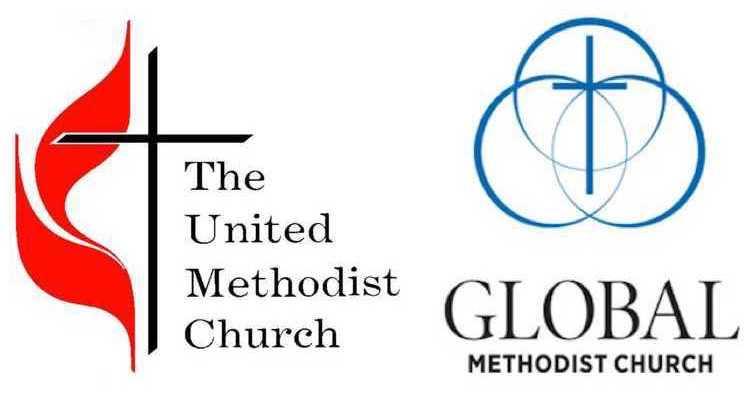A time of discernment
Local Methodist churches ponder future
It is a time of serious reflection, thought and prayer for several of Liberty County’s United Methodist Churches as some local congregations undergo a period of discernment on their future with the 54-year-old denomination.
This movement results from a rift amongst the UMC over opposing ideologies resulting from the understandings of biblical principles and interpretation, human sexuality, and the hierarchy of the clergy within the denomination.
Previously, an agreement known as “The Protocol” was negotiated in Jan. 2020 that would allow congregations that wanted to separate from the denomination to do so and enable those that stayed to reform the church. But delays in the general conference have caused lingering issues to worsen.
Following the Texas Annual Conference earlier this month, many congregations have begun the process of considering their place within the UMC. The process calls for a time of discernment as church leaders ask their congregations to make decisions based on God’s will for the church, not personal preferences, as they consider affiliations.
At least 120 of the 600 churches in the Texas Annual Conference have already entered a period of discernment, with more following suit daily, according to Rev. Guy Williams during a Town Hall held on Sunday, June 26, at the First United Methodist Church of Dayton.
Many churches contemplating the need for separation tend to lean toward a more traditional approach to the Methodist faith and believe that progressive Methodists have pushed the boundaries of the church’s Book of Discipline in recent years, leading to a schism over fundamental differences.
If any churches choose to leave, they will have some options, but most would likely choose to participate in the new Global Methodist Church, which launched on May 1.
Locally, Dayton is the first to begin the process, following a unanimous decision by their administrative council on June 6 to look at the future of their denominational affiliation. That 40-day process began Wednesday, June 15, and calls for a time of prayer, learning, reflection, and conversation to discern God’s future for their congregation.
Following the discernment period, which is designed to inform and educate the congregation on the matters at hand, the church’s administrative council will again meet on Monday, Aug. 1, to recommend disaffiliating with the UMC if they believe it is merited before the church convenes to make an ultimate decision.
Dayton will soon be joined by the Hardin United Methodist Church, which plans to begin its discernment process following the Southeast Texas District meeting on Sunday, July 10. Their administrative council will then officially lay out the process for the church in Hardin at their regular meeting on Monday, July 11.
Rev. Gideon Watson, a self-described traditional conservative, has led that congregation for 31 years and believes it is vital for as many churches to understand what is happening as possible.
“The more people in the Methodist Church that know what’s happening, the better. Here’s the thing, it’s not about homosexuality. People try to make it out to that; that’s just one of the problems we have in the church,” said Watson.
He went on to lay out what he feels is the misdirection of the church in recent years, as he believes progressives have taken the Bible and dissected its teachings in scholarly pursuits.
“In the Bible, I believe God gave us his word from Genesis to Revelation, and we take the whole book. We believe in it,” said Watson.
Hardin will follow a similar path to Dayton, informing the congregation and providing literature and guidance as they reflect on this important decision.
“I have no doubt this is the right way to go with the discernment process,” said Watson.
While Watson believes his church is likely on a similar page with one another, he does not want to assume how things will turn out but that he will support whatever decision they make.
That decision is important as pastors will also choose their future within the church.
Williams told those attending the town hall in Dayton that he sees himself carving out a path within traditional Methodism, which he believes is a warm-hearted acceptance of everyone and traditional-minded in terms of doctrine and understanding of sexuality.
“I probably see myself in the big picture, long term probably aligned more with the GMC kind of grouping of Methodism, because where I think the United Methodist Church has moved too,” Williams said.
But like Watson, he wants to see what the church decides to do, as both see themselves at home within their churches.
If any church opts for disaffiliation, they will have to provide two years of their apportionments to the Texas Annual Conference and their share of funds to the pension system for retired ministers in full to retain the rights to their church facilities.
The first opportunity to officially depart the UMC will come at a special meeting of the Texas Annual Conference this December, where a number of churches in the greater East Texas, Southeast Texas, and Houston areas are expected to opt-out.
Churches that opt for disaffiliation will have another opportunity at the annual conference next summer; however, the process is expected to become more complicated and probably more expensive for congregations as time passes.
Joining Dayton and Hardin is FUMC of Daisetta, who officially began the discernment process on June 22 and has posted daily updates to their Facebook page.
As of press time Wednesday, attempts to reach out for information about the Methodist churches in Liberty and Cleveland have been unsuccessful.
For more information about the UMC, visit www.umc.org, and for details on the GMC, visit globalmethodist.org. For information on local churches, contact your local church office.

